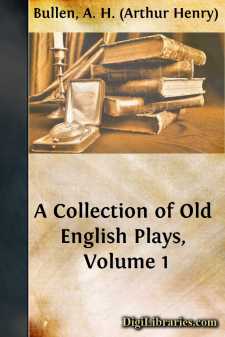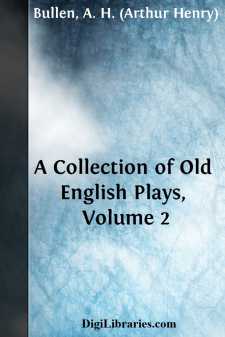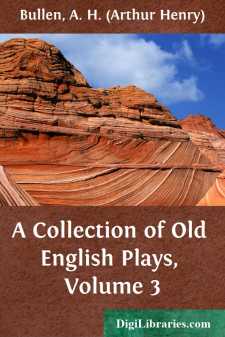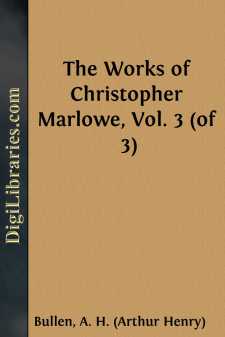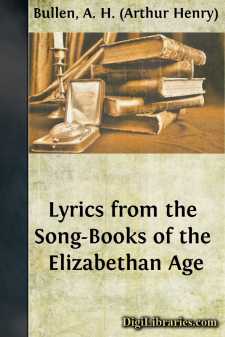Categories
- Antiques & Collectibles 13
- Architecture 36
- Art 48
- Bibles 22
- Biography & Autobiography 813
- Body, Mind & Spirit 142
- Business & Economics 28
- Children's Books 17
- Children's Fiction 14
- Computers 4
- Cooking 94
- Crafts & Hobbies 4
- Drama 346
- Education 46
- Family & Relationships 57
- Fiction 11829
- Games 19
- Gardening 17
- Health & Fitness 34
- History 1377
- House & Home 1
- Humor 147
- Juvenile Fiction 1873
- Juvenile Nonfiction 202
- Language Arts & Disciplines 88
- Law 16
- Literary Collections 686
- Literary Criticism 179
- Mathematics 13
- Medical 41
- Music 40
- Nature 179
- Non-Classifiable 1768
- Performing Arts 7
- Periodicals 1453
- Philosophy 64
- Photography 2
- Poetry 896
- Political Science 203
- Psychology 42
- Reference 154
- Religion 513
- Science 126
- Self-Help 84
- Social Science 81
- Sports & Recreation 34
- Study Aids 3
- Technology & Engineering 59
- Transportation 23
- Travel 463
- True Crime 29
A Collection of Old English Plays, Volume 1
Description:
Excerpt
THE TRAGEDY OF NERO,
Newly Written.
Imprinted at London by Augustine Mathewes, and John Norton, for Thomas Jones, and are to bee sold at the blacke Raven in the Strand, 1624.
The Tragedie of Nero.
Actus Primus.
Enter Petronius Arbyter, Antonius Honoratus.
Petron. Tush, take the wench
I showed thee now, or else some other seeke.
What? can your choler no way be allayed
But with Imperiall tytles?
Will you more tytles[1] unto Caesar give?
Anto. Great are thy fortunes Nero, great thy power,
Thy Empyre lymited with natures bounds;
Upon thy ground the Sunne doth set and ryse;
The day and night are thine,
Nor can the Planets, wander where they will,
See that proud earth that feares not Caesars name.
Yet nothing of all this I envy thee;
But her, to whom the world unforst obayes,
Whose eye's more worth then all it lookes upon;
In whom all beautyes Nature hath enclos'd
That through the wide Earth or Heaven are dispos'd.
Petron. Indeed she steales and robs each part o'th world
With borrowed beauties to enflame thine eye:
The Sea, to fetch her Pearle, is div'd into;
The Diomond rocks are cut to make her shine;
To plume her pryde the Birds do naked sing:
When my Enanthe, in a homely gowneвÐâ
Anto. Homely, I faith.
Petron. I, homely in her gowne,
But looke vpon her face and that's set out
With no small grace; no vayled shadowes helpe.
Foole! that hadst rather with false lights and darke
Beguiled be then see the ware thou buyest.
Poppea royally attended, and passe over the Stage in State.
Anto. Great Queene[2], whom Nature made to be her glory,
Fortune got eies and came to be thy servant,
Honour is proud to be thy tytle; though
Thy beauties doe draw up my soule, yet still
So bright, so glorious is thy Maiestie
That it beates downe againe my clyming thoughts.
Petron. Why, true;
And other of thy blindnesses thou seest[?]
Such one to love thou dar'st not speake unto.
Give me a wench that will be easily had
Not woed with cost, and being sent for comes:
And when I have her foulded in mine armes
Then Cleopatra she, or Lucres is;
Ile give her any title.
Anto. Yet not so much her greatnesse and estate My hopes disharten as her chastitie.
Petron. Chastitie! foole! a word not knowne in Courts.
Well may it lodge in meane and countrey homes
Where povertie and labour keepes them downe,
Short sleepes and hands made hard with Thuscan Woll,
But never comes to great mens Pallaces
Where ease and riches stirring thoughts beget,
Provoking meates and surfet wines inflame;
Where all there setting forth's but to be wooed,
And wooed they would not be but to be wonne.
Will one man serve Poppea? nay, thou shalt
Make her as soone contented with an [one?] eye.
Nimphidius to them.
Nimph. Whil'st Nero in the streetes his Pageants shewes
I to his fair wives chambers sent for am.
You gracious Starres that smiled on my birth,
And thou bright Starre more powerful then them all,
Whose favouring smiles have made me what I am,
Thou shalt my God, my Fate and fortune be.
[Ex....


